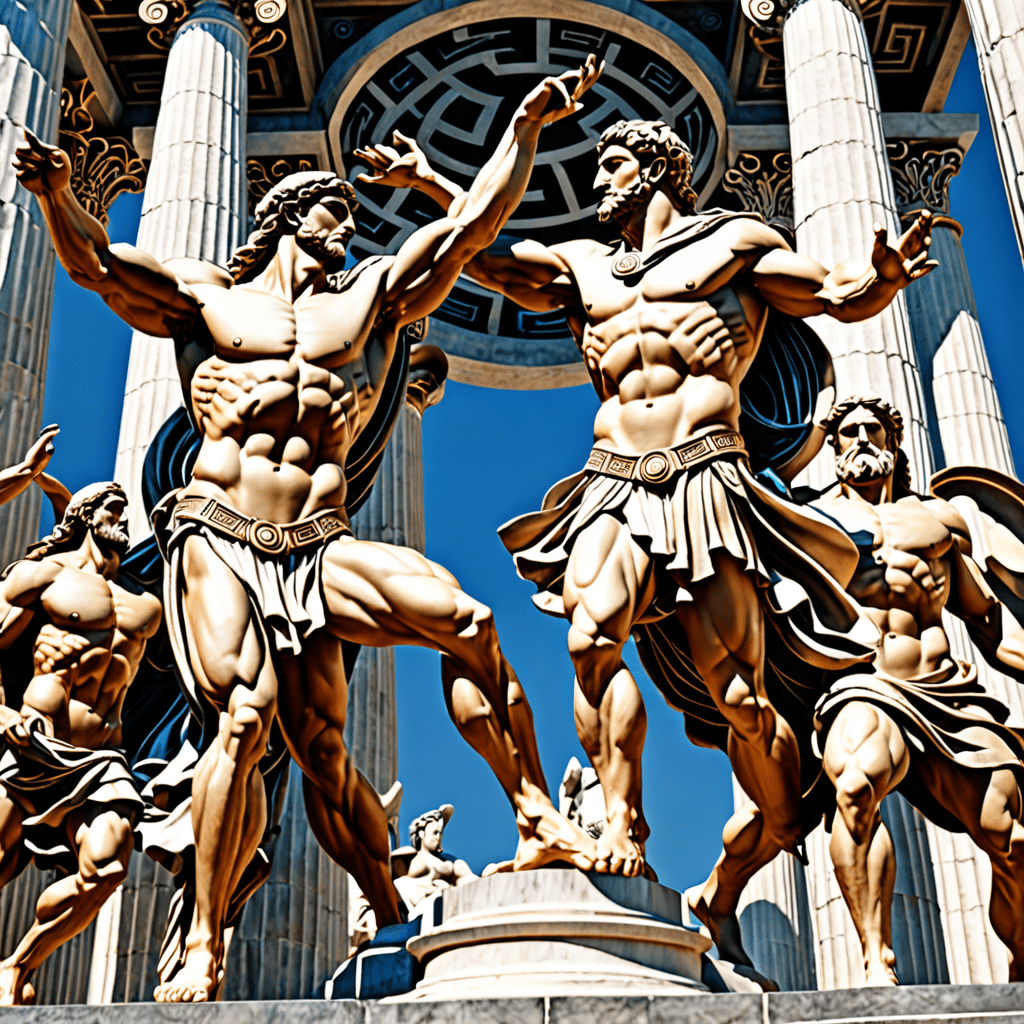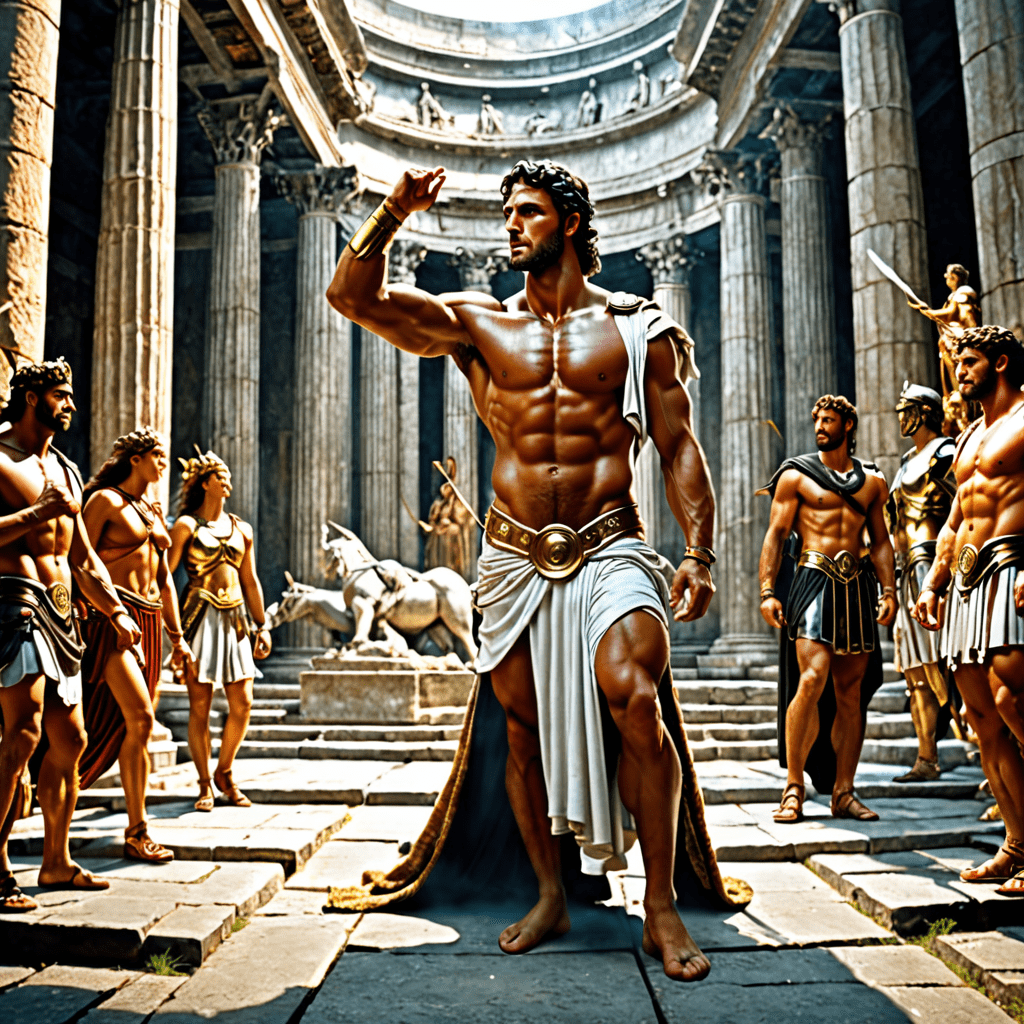The Morality of Myths: Lessons from Global Legends
I. Introduction
Myths have been an integral part of human culture for millennia, serving as narratives that encapsulate the beliefs, values, and moral lessons of societies. Defined as traditional stories that explain natural or social phenomena, myths often involve supernatural beings or events. Their significance lies not only in their entertainment value but also in their capacity to convey profound truths about human existence.
Across the globe, myths are rich with moral lessons that offer guidance on ethical behavior, the nature of good and evil, and the importance of community. This article aims to explore the ethical teachings derived from various myths, highlighting their relevance in both historical and contemporary contexts.
II. The Role of Myths in Society
Myths have played a crucial role in the cultural development of societies throughout history. They have served as:
- Historical Context: Myths often provide insights into the values and beliefs of the cultures from which they originate.
- Moral Education: They act as vehicles for teaching moral lessons, helping individuals navigate complex ethical landscapes.
- Universality of Themes: Many moral themes, such as justice, sacrifice, and community, recur across different cultures, illustrating shared human experiences.
III. Key Moral Themes in Global Myths
Several key moral themes can be found in global myths, including:
- The Hero’s Journey: This theme often involves a protagonist who embarks on a quest, facing trials that lead to personal growth and the quest for virtue.
- The Consequences of Hubris: Many myths caution against pride and arrogance, illustrating how these traits can lead to downfall.
- Importance of Community: Myths frequently emphasize social responsibility and the interconnectedness of individuals within a community.
IV. Case Study: Greek Mythology
Greek mythology is replete with powerful narratives that convey moral lessons. Prominent myths include the tales of Prometheus, who defied the gods to bring fire to humanity, and Icarus, who flew too close to the sun despite warnings from his father.
These stories impart significant moral lessons:
- Sacrifice: Prometheus’s punishment for his defiance teaches the value of sacrifice for the greater good.
- Consequences of Defiance: Icarus’s tragic fate serves as a warning against overreaching ambition and ignoring wise counsel.
In contemporary society, these lessons resonate with individuals facing ethical dilemmas in their personal and professional lives.
V. Case Study: Hindu Epics (Mahabharata and Ramayana)
The Mahabharata and the Ramayana are two of the most significant texts in Hindu mythology, rich with moral dilemmas faced by their characters. These epics explore themes of duty (dharma), righteousness, and the complexity of moral choices.
Key characters, such as Arjuna in the Mahabharata, grapple with ethical conflicts that challenge their understanding of duty and justice. The lessons drawn from these narratives include:
- Dharma: The importance of adhering to one’s duty, even in the face of personal loss.
- Righteousness: The complexity of moral choices and the necessity of aligning actions with ethical principles.
These stories have profoundly impacted Indian culture and continue to shape ethical frameworks in contemporary society.
VI. Case Study: African Folktales
African folktales, such as those featuring Anansi the Spider, embody rich moral teachings. Anansi, known for his cunning and resourcefulness, often finds himself in situations that highlight the importance of wit and community values.
Morals derived from these tales include:
- Resourcefulness: The significance of cleverness and adaptability in overcoming challenges.
- Community Values: The importance of collaboration and mutual support within a community.
Storytelling serves as a vital tool in preserving cultural identity, passing down these moral lessons through generations.
VII. Case Study: Native American Legends
Native American legends often convey teachings centered on harmony with nature and respect for all living beings. Stories such as those involving the Great Spirit emphasize the interconnectedness of life.
Significant themes include:
- Harmony with Nature: The belief in living in balance with the natural world and understanding one’s place within it.
- Respect for All Living Beings: The moral obligation to honor and protect the environment and all its inhabitants.
These lessons are increasingly relevant today, informing environmental ethics and conservation efforts.
VIII. The Psychological Impact of Myths
Myths serve as powerful tools for personal growth and moral reflection. They provide frameworks through which individuals can explore their values and beliefs. The use of archetypes in myths helps in understanding human behavior and the complexities of ethical decision-making.
By engaging with these narratives, individuals can:
- Reflect on Personal Morality: Myths encourage introspection and critical thinking about one’s values.
- Understand Archetypes: Recognizing archetypal characters can aid in personal development and understanding of others.
Ultimately, myths can guide ethical decision-making in modern life, providing a moral compass in a rapidly changing world.
IX. The Evolution of Myths in the Modern World
Traditional myths have evolved, influencing contemporary storytelling in films, literature, and media. This transformation allows ancient themes to remain relevant to modern audiences.
Key points of evolution include:
- Modern Adaptations: Classic myths are often reinterpreted in new contexts, making them accessible to younger generations.
- Relevance of Themes: Timeless moral lessons continue to resonate, addressing contemporary issues such as identity, justice, and community.
Modern myths continue to impart moral lessons, reflecting the enduring power of storytelling.
X. Conclusion
In conclusion, the exploration of myths reveals a rich tapestry of moral lessons that transcend cultural boundaries. From the sacrifices of Greek heroes to the ethical dilemmas in Hindu epics and the wisdom of African folktales, these narratives illuminate the complexities of human morality.
As we navigate our own lives, the teachings embedded in these global legends offer valuable guidance, reminding us of the importance of virtue, community, and respect for nature. Myths, in their many forms, continue to shape our understanding of ethics and morality in an ever-evolving world.



